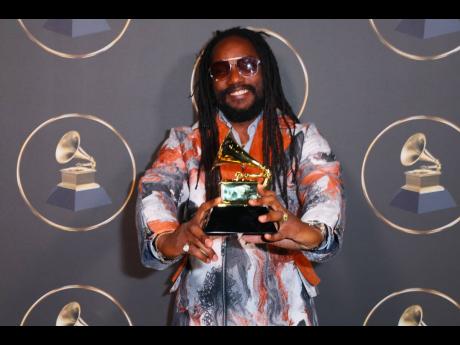Kingston-born reggae star Kabaka Pyramid is one of a handful of artists bringing positivity back into the genre.
On Sunday, despite being the only first-time nominee among the contestants in his category, Kabaka Pyramid was announced as the winner of the 2023 Grammy for Best Reggae Album.
His project, ‘The Kalling’, beat Sean Paul’s ‘Scorcha’, Koffee’s ‘The Gifted’, Protoje’s ‘The Third Time’s the Charm’, and Shaggy’s ‘Come Fly Wid Me’.
The name Kabaka must be confusing to you; it also caught our attention. No, he is not Ugandan, he is Jamaican.
Fellow Jamaicans and other fans of reggae music around the world have always questioned the meaning of his name, Kabaka.
“I found the name Kabaka while I was searching for African names, and it resonated with me. In the Ugandan Empire, Kabaka means King. Then I attached ‘Pyramid’ to it because that is one of the highest achievements of black civilization. Pyramids are monuments that have stood the test of time, and I want my music to be like that,” Kabaka Pyramid is always quoted as saying.
But who is Kabaka Pryamid?
Kabaka Pyramid rose to popularity in the mid-2000s with his socially conscious fusion of hip-hop, reggae, and dancehall.
He made his first major breakthrough when he was awarded a spot on the international selector for DJ Green Lantern’s “Myspace Invasion” Mixtape in 2007.
This was immediately followed by the release of his own promotional mixtape, “The Transition Vol. 1,” which received much acclaim in the underground hip-hop community.
Fast forward to 2009; Kabaka Pyramid continued to garner even more notoriety with the release of the “ The Transition Vol 2” mixtape.
He has collaborated with global reggae icons including Protoje, Chronixx, and Damian Marley, among others, and he acknowledges the efforts of the forefathers like Bob Marley, Peter Tosh, and Bunny Wailer, who upheld and popularized reggae music in the world in the 1970s.
